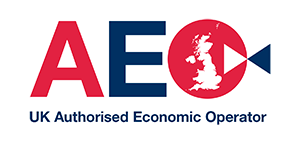
Commercial invoices are going to be an essential aspect of trade following the end of the transition period. We have detailed everything that you need to know in order to continue to trade smoothly and avoid delays.
What are Commercial Invoices?
A commercial invoice acts as a legal document to show the binding agreement between the importer/exporter and the seller of the goods being transported.
Commercial invoices are required when transporting goods between the UK and the EU, making them an integral aspect of customs processes after the 1st January 2021.
What Does A Commercial Invoice Need to Contain?
A commercial invoice needs to contain a multitude of information including:
-
The gross and net weight of goods and the values and currencies by HS/commodity/tariff code
-
The origin of the goods by HS/tariff/commodity code for each product line
-
Description of the goods
-
Quantity of the goods being transported
-
The EORI numbers of both the buyer and the seller of the goods.
Another thing that should be included is the CPC (customs procedure codes). Whilst this is not essential, if this is not added to your commercial invoice then the person who is submitting the declaration will need to obtain a separate instruction from the customer in order to ensure that the import/export declaration has been completed correctly.
It is vital to note that there are different types of CPC codes including:
-
Standard exports
-
Inward Processing Relief (IPR)
-
Outward Processing Relief (OPR)
-
Returns
-
Repairs
Item Values
Item values are a crucial aspect of a commercial invoice as they help to determine the amount of duty that is payable. It is important that these values are arranged by HS/Tariff/Commodity code in order to calculate this amount.
There are some line items that are not necessarily dutiable, such as services. In these instances it is vital that the declaration is clear and correct in order to avoid a heavier duty charge than what you have actually accumulated.
On occasion, there may be instances where there is no value for a particular shipment - for example if you are shipping samples. It is important that under these circumstances you include the wording “Nominal Value for Customs Purposes Only” and display a cost that reflects the ex-works price. Wording such as “Free Issue” is incorrect and could cause problems on your invoice.
Incoterms
Incoterms are an extremely important aspect of trade following the end of the transition period. In short, these are the terms which the buyers and sellers agree upon when conducting international trade in order to settle any disputes that may arise during the transaction of goods.
It is important that incoterms are included on the commercial invoice for clarity purposes.
Find out more about incoterms.
It is vital that you follow these instructions when filling out your commercial invoice as, without all of the correct information, you will face delays when transporting goods following the end of the transition period on the 1st January 2021.
Make sure you’re ready. For more information on how to prepare make sure that you read our blog!








